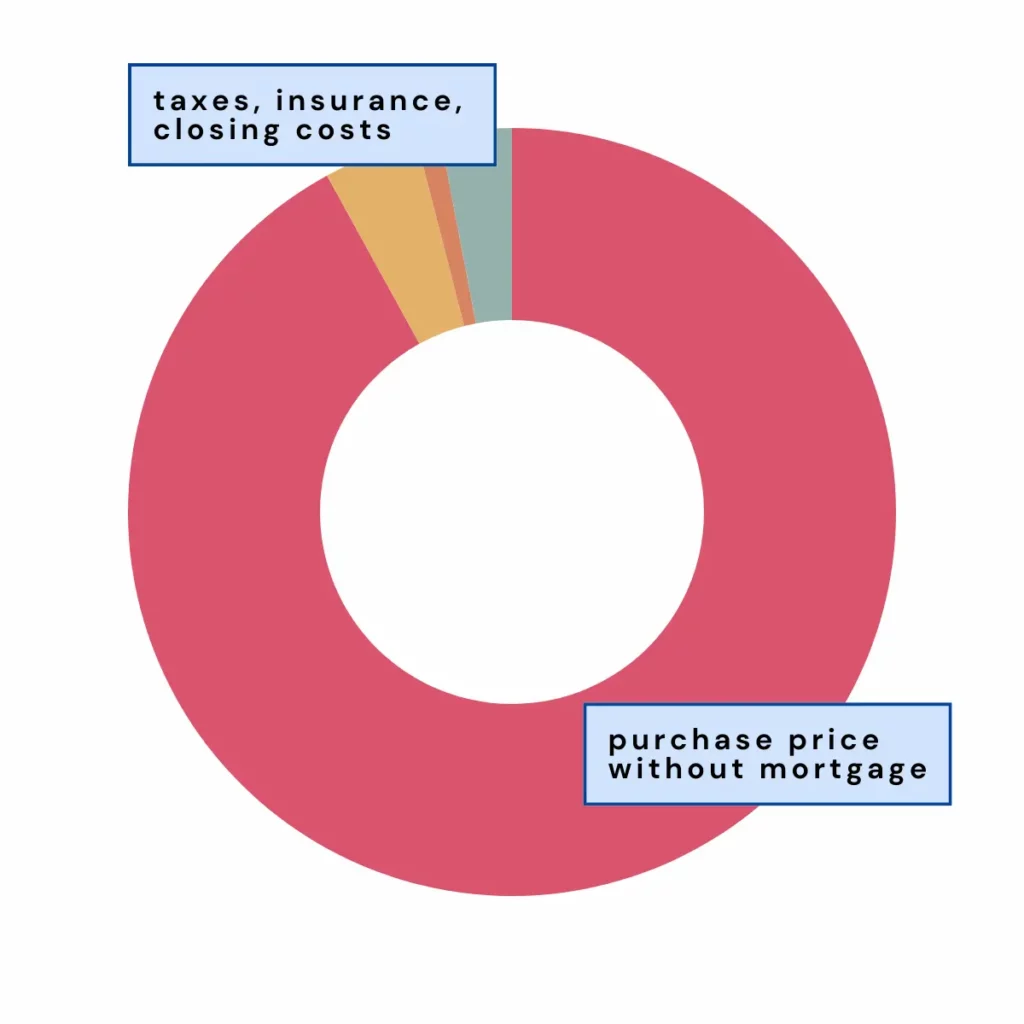Many people do not realize that buying a property involves more than just paying the purchase price, both in terms of tasks and financial aspects. To make a well-considered financial decision and commit to the purchase, it is advisable to thoroughly understand the additional possible costs associated with buying a property.
Keep in mind that these additional costs can reach up to 8-10% of the property’s purchase price (without a mortgage), before you even receive the keys to your new home.

1. Purchase Price
The most obvious cost is the purchase price of the property. This is the agreed-upon amount between the buyer and the seller. Depending on the location and type of property, this price can vary significantly.
Down Payment: Most property purchases require a down payment, which is typically a percentage of the total purchase price. This amount can range from 5% to 20% or more, depending on the lender’s requirements and the buyer’s financial situation.
2. Mortgage Costs
If you are financing your property purchase with a mortgage, several costs are associated with this:
- Origination Fees: Charged by the lender for processing the loan application.
- Interest: The cost of borrowing the money, paid over the life of the loan.
- Private Mortgage Insurance (PMI): Required if your down payment is less than 20% of the purchase price.
3. Property Taxes
Property taxes are a recurring expense based on the assessed value of the property. These taxes are typically paid annually or semi-annually and vary widely depending on the property’s location.
4. Homeowners Insurance
Homeowners insurance protects your property against damage and loss. The cost of this insurance depends on the property’s value, location, and coverage level. Lenders often require proof of insurance before finalizing the mortgage.
5. Closing Costs
Closing costs are fees paid at the closing of a real estate transaction. They can include:
- Title Insurance: Protects against future claims on the property.
- Attorney Fees: Costs associated with legal representation during the transaction.
- Appraisal Fees: Charges for evaluating the property’s value.
- Inspection Fees: Costs for inspecting the property for any issues or defects.
- Recording Fees: Fees for recording the purchase with the local government.
Closing costs typically range from 2% to 5% of the purchase price.
6. After Purchase
- Maintenance, Repairs or Furnishing
- Homeowners Association (HOA) Fees: maintaining common areas and amenities within the community.
- Moving Costs
- Utilities and Services: setting up utilities and services such as electricity, water, gas, internet, and cable often requires an initial setup fee. Ongoing monthly costs should also be considered as part of your property budget.


